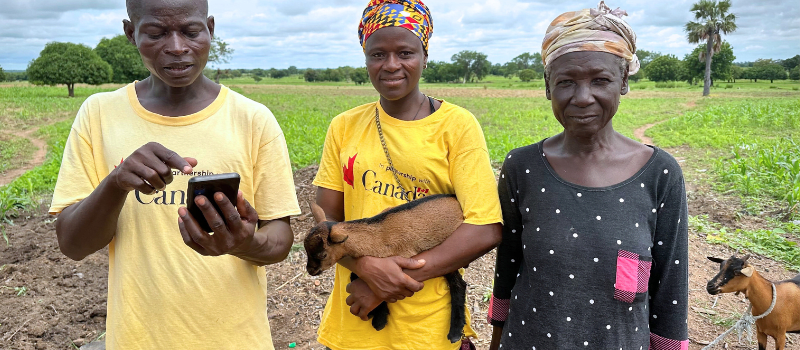YELLOWKNIFE, NT, July 26, 2023 – In response to the wildfire-related evacuations taking place in Behchokǫ̀, NWT – a community of approximately 2,000 people located 100 kms outside of Yellowknife, Veterinarians Without Borders/Vétérinaires Sans Frontières (VWB/VSF) has partnered with NWT SPCA to provide emergency animal care and veterinary services to animals evacuated from Behchokǫ̀ and their guardians. This includes access to pet food, temporary shelters, and veterinary assessment and care as needed – including vaccinations. Wildfires have reacehd Behchokǫ̀ and residents have been evacuated, with many travelling to Yellowknife for safety. In Yellowknife, many pets are being left in vehicles as some government-provided accommodations for residents does not permit animals indoors. Many of these animals were brought to Yellowknife through an uncoordinated effort by self-appointed volunteers who gathered free-roaming animals that were still in the community.
Currently, these fires have burnt over 63,441 hectares of land, in one of the most destructive wildfire seasons in NWT on record.
“Access to Behchokǫ has been significantly impacted by the fires,” said Dr. Michelle Tuma (DVM), VWB/VSF’s Northern Canada Veterinary Specialist, who is based in Yellowknife and co-leads veterinary clinics in remote northern communities. “Thankfully, these volunteers were able to evacuate numerous animals that remained in the community via automobiles and planes,” she added. “Once these animals arrive in Yellowknife, the priority is to secure shelter and food for them. As many of our local boarding facilities and our one shelter, the NWT SPCA, are currently full, this has become a community effort and we’re encouraging anyone who might have space at their home or properties to temporarily house an animal to contact caroline_cochrane@ntassembly.ca to be put on the foster home coordination list,” said Tuma.
“This is a frightening situation but the staff at the animal shelter are working to ensure the care of all pets coming to the shelter is top priority,” said Nicole Spencer, executive director at the NWT SPCA. “However, with the shelter being at a maximum capacity now and limited staff, we are asking for oriented volunteers to come in and help clean and walk dogs. As well, any SPCA fosters who are available can contact us at dogs@nwtspca.com to help with our current shelter dogs. We are asking for everyone to come together to help the animals and people in need at this time,” said Spencer.
To help support people and animals affected by these wildfires, VWB/VSF is launching an Emergency Response Effort. As part of these efforts, we will be helping animals secure temporary boarding facilities. Animals at these boarding facilities will be provided with preventative treatment to protect them from exposure to diseases, including vaccinations and parasite treatment. VWB/VSF will support both the NWT SPCA and boarding facilities with resources including pet food and volunteers. To help coordinate this effort, we are looking to hire a local logistics coordinator in Yellowknife to support Dr. Tuma. VWB/VSF will remain responsive to any changing needs or logistics created by the ongoing wildfires.
Important resources
- Anyone interested in supporting the Emergency Response Effort can donate or learn more at: https://www.vetswithoutborders.ca/site/donate-northern-animal-health-initiative
- Anyone interested in helping to walk dogs at boarding facilities, please sign up here: https://www.vetswithoutborders.ca/site/volunteer-wildfire-response
- Locals (Yellowknife, NT) who have space at their home or properties to temporarily house an animal can contact caroline_cochrane@ntassembly.ca to be put on the foster home coordination list.
- Any SPCA fosters who are available to help can contact dogs@nwtspca.com to assist with current shelter dogs.
Media Contact
Laura Eley
Communications Officer
E: laura@vetswithoutborders.ca
C: +1 343-633-0272, x 114
About Veterinarians Without Borders/Vétérinaires Sans Frontières
Using a One Health approach, Veterinarians Without Borders (VWB) works for, and with, communities in need to foster the health of animals, people and the environments that sustain us. VWB works in Africa and Asia to improve the living conditions of the most disadvantaged rural populations through veterinary and agricultural services, sustainable animal production, training, value chain development and sustainable natural resource management. Additionally, we support remote Northern Canadian communities to improve animal health through temporary spay and neuter clinics, reduce the spread of rabies, and work to create the conditions for long-term, community-led sustainable animal health services.
Learn more at vetswithoutborders.ca
About the Northern Animal Health Initiative
The NAHI program is focused on increasing access to animal health services in the Canadian North by providing services and resources to strengthen capacity in remote communities in Nunavut and the Northwest Territories. VWB/VSF develops partnerships with remote communities in the Canadian territories upon their invitation. Together, they work to identify needs and build a plan with community representatives and leadership to strengthen local capacity to address animal care needs year-round. This includes offering annual temporary veterinary clinics with a team of volunteers. VWB/VSF’s goal is to build a sustainable framework that will create the conditions for lasting, community-driven animal health.
-30-




